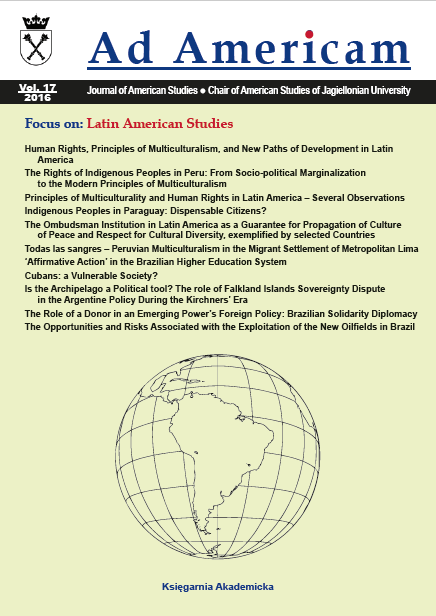Affirmative Action in the Brazilian Higher Education System
Affirmative Action in the Brazilian Higher Education System
Author(s): Anna Chojnowska, Renata Siuda-AmbroziakSubject(s): Politics, Sociology of Education
Published by: KSIĘGARNIA AKADEMICKA Sp. z o.o.
Keywords: Brazil; education system; affirmative action; racism; racial relations
Summary/Abstract: The purpose of this article is to discuss the advantages and disadvantages of affirmative action in the Brazilian system of higher education, which is aimed at benefitting Afro- Brazilians suffering from the legacy of structural racism and economic inequality. The authors will highlight some of the problems linked to the racial quota system, and demonstrate that its implementation is deeply hindered by several factors, such as traditional denial of existing racial prejudice in Brazilian society, a lack of precise, normative definitions of eligibility for programs, failure of pre-university public education to properly prepare students for university-level academics, and – last but not least – a lack of sufficient support from academic institutions. The article will present both quantitative and qualitative data that show the expectations, doubts, and fears of the Brazilian academic environment with regard to the racial quota system. After a review of Brazil’s racial history and an analysis of students’ and professors’ opinions, the authors will argue that, in order for colored citizens to become fully integrated into Brazilian society, they must first be legally enabled to overcome social, educational, and economic obstacles and handicap.
Journal: Ad Americam. Journal of American Studies
- Issue Year: 2016
- Issue No: 17
- Page Range: 95-107
- Page Count: 13
- Language: English

